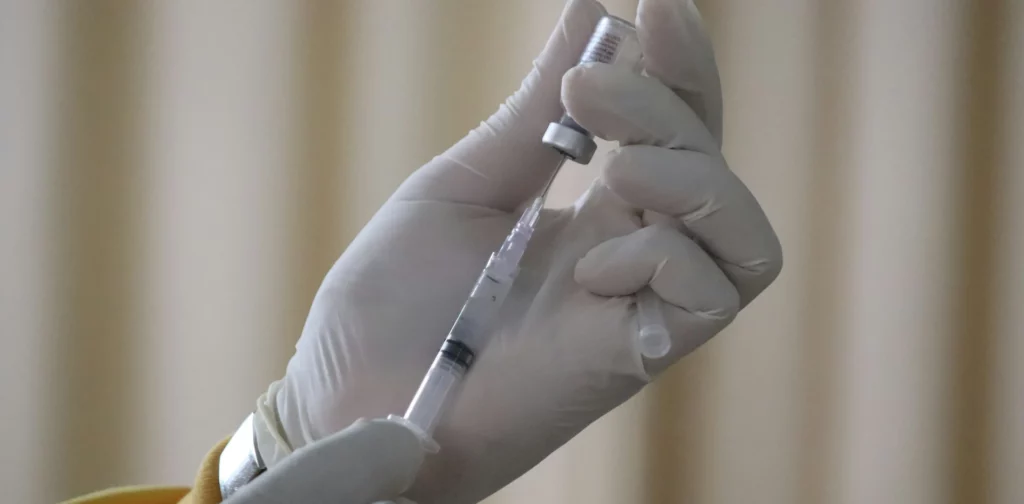Life-Saving Access to Rabies Vaccines Needed

Photo: Mufid Majnun on Unsplash
In sustainable development, efforts to ensure equitable and universal access to healthcare are one of the top priorities. However, to date, there are still gaps in the sector for underserved regions and marginalized communities. For instance, many rural and poor communities lack access to vaccines for life-threatening diseases like rabies. Efforts to provide rabies vaccines worldwide are underway.
What Is Rabies?
Rabies is a zoonotic disease caused by a virus that is transmitted through contact with infected mammals, such as dogs, cats, livestock, and wildlife. The virus is usually spread to humans through saliva, most commonly via a bite.
The disease affects the central nervous system, causing fever, pain, or tingling sensations. Rabies also causes difficulty swallowing due to hydrophobia or aerophobia, where infected individuals experience throat spasms when drinking or breathing. Currently, there are no diagnostic tools to detect rabies before typical symptoms begin. Once symptoms appear, the chances of survival are almost zero.
Almost all cases of rabies infections are caused by human interaction with infected dogs. Most cases occur in Africa and Asia, where rabies infected dogs are often poorly controlled. Furthermore, the risk is higher in children as they are more likely to be bitten, and incidents often go unreported.
Poor, Rural Communities and Rabies Vaccines
Rabies may disproportionately affect remote, poor, and rural communities where there are limited to no control programs and access to the vaccines. Even though effective vaccines and treatments exist, they can be too expensive or hard to get due to ‘limited stock’. For instance, the average cost of rabies treatment after exposure was $108, not including travel expenses and lost wages.
In this case, proper funding combined with a robust framework would help countries secure enough stock to serve their populations. Among ongoing efforts is an initiative by Gavi, the Vaccine Alliance, which supports countries in ensuring easier access to post-exposure prophylaxis (PEP) rabies vaccines.
The initiative offers funding for vaccine supplies to countries that meet the guidelines and submit applications. Each year, there will be three funding application periods. Gavi expects that if governments provide rabies vaccines, they will be much more affordable compared to when provided by the private sector only. This initiative is part of the Zero by 30 campaign, which aims to eliminate deaths from dog-mediated rabies.
One Health for All
Ensuring fair access to healthcare is crucial, especially in rural, poor, and marginalized communities where preventable and treatable diseases can be deadly. Inadequate healthcare facilities, resources, and information make them more vulnerable to illnesses. Therefore, improving funding mechanisms and supportive policy in the sector would hopefully advance the global progress toward universal healthcare.
Furthermore, the healths of people, animals, and the environment are interconnected. Sustainable development issues like climate change, animal welfare, biodiversity, food & nutrition, health, and poverty are all linked. So, multi-sectoral and multi-stakeholder strategies are key to successfully implement a holistic approach to health and wellbeing with no one left behind.

Subscribe to Green Network Asia
Strengthen your personal and professional development with cross-sectoral insights on sustainability-related issues and sustainable development across the Asia Pacific and beyond.


 How the Manosphere Is Reshaping Young Men’s Identity
How the Manosphere Is Reshaping Young Men’s Identity  How Plant the Emirates Aims to Support Food Self-Sufficiency in the UAE
How Plant the Emirates Aims to Support Food Self-Sufficiency in the UAE  GRI’s Updated Sustainability Standards on Climate Change and Energy
GRI’s Updated Sustainability Standards on Climate Change and Energy  Looking into Biochar as a Bioremediation Agent
Looking into Biochar as a Bioremediation Agent  Australian Climate Visa for Citizens of Tuvalu: Showcasing cross-border partnership in light of the climate crisis
Australian Climate Visa for Citizens of Tuvalu: Showcasing cross-border partnership in light of the climate crisis  Nickel Mining in Raja Ampat and the Widespread Cost of Natural Resource Exploitation
Nickel Mining in Raja Ampat and the Widespread Cost of Natural Resource Exploitation